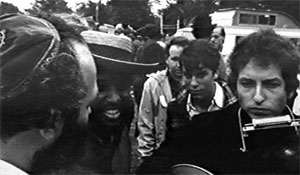This d'var Torah is dedicated to the aliyah of the neshama of my blessed father, Israel J. Melman, Yisrael Yehoshua ben HaRavYaakov Hakohen Melman, z"l. This evening, the 27th of Tammuz is the anniversary of his ninth yahrzeit. My father was a great physicist and inventor who saw the awesomeness of G*d in the details of science. He was a pioneer on the cutting edge of 20th century technology, whose work was influential in the field of color television, telecommunications, satellite infrared technology and computer infomatics. Most important of all he was a great father and a great and kind human being - a mentsch.
What connection is there between the listing of the resting places in the beginning of Parshat Massei and the directive that the Levites should apportion themselves 48 Levitical cities, six of which would be dedicated as special cities of refuge, to seek asylum for an accidental homicide?
If you subtract the six cities of refuge from the total of 48 Levitical cities, you get the number 42, which also corresponds to the number of resting places for the Children of Israel in their forty years of wandering. This was mentioned by the commentator the Kli Yakar. Below is an expansion on the concept.
The function of the Levitical cities was to provide numerous centers of Torah learning spread out throughout the entire Land of Israel. The tribe of Levi was to function as the teachers of Torahand spirituality for the People of Israel.
Furthermore, the layout of the Levitical cities was such that wide bands of greenery and open spaces surrounded the cities on all sides. In other words, they were ecologically and psychologically sound, in that nature and human nature were best served. Human needs require ready access to nature. Nature's needs require ready protection from humanity's abusive tendencies.
Just as the Levites provided a place in space to learn Torah, so too did the 42 resting places provide a place in time. By definition they were not places of permanence. Nevertheless they functioned as oases of the spirit, identical in function as the later Levitical cities. Hence their linkage in the same sedrah.
But what about the other six cities, the cities of refuge? What do they represent? Let us examine the nature of those cities. They served as a place of asylum for one who accidentally took a life, to protect him from the blood avenger. No such protection was afforded to one found guilty of premeditated murder.
There were seven year cycles. The seventh year was devoted solely to learning Torah and spiritual growth. It was a sabbatical- but for farmers, not professors.
But what about the other six years? The hard life of the farmer consisted of endless chores. Time set aside for learning could hardly be planned consistently. The Sabbath was the sole respite to give sanctuary to the soul. Just as the six cities served as a shelter for crimes of carelessness and unplanned killing, so too the six pre-Sabbatical years symbolize the unfortunate lack of care and planning in the realm of Torah study and spiritual development inherent to those nonSabbatical years in the agrarian life.
The Levites of the Levitical cities were devoted 42/7 to the dissemination of Torah throughout Israel. Especially In all 42 non-asylum Levitical cities and especially in the seventh year, the Shemitah year.
We who live today, who are blessed with the possibility of infinite free time owing to the liberating advanced technology all around us should manage to devote ourselves at least 24/7 to Torah!
Shabbat Shalom!
Good Shabbos!
© 2000 - 2011 by Rabbi Baruch Binyamin Hakohen Melman
These words of Torah are written in the merit of my beloved father, Israel J. Melman, obm, Yisrael Yehoshua ben Harav Ya'aqov Hakohen Melman, z"l and in memory of my beloved mother, Esther Melman, obm, Esther bat Baruch z"l.
http://seferchabibi.blogspot.com/2007/07/yahrzeit-of-my-father-27-tammuz.html
http://query.nytimes.com/gst/fullpage.html?res=9506EEDC1630F93BA35754C0A9649C8B63
http://www.legacy.com/obituaries/nytimes/obituary.aspx?n=esther-melman&pid=143745543
Chabibi stands for CHidushei Baruch Binyamin ben Yisrael Yehoshua
(a chidush, from the word chadash, means a new, original or fresh perspective)
These words of Torah are written in the merit of my beloved father, Israel J. Melman, obm, Yisrael Yehoshua ben Harav Ya'aqov Hakohen Melman, z"l and in memory of my beloved mother, Esther Melman, obm, Esther bat Baruch z"l.
http://seferchabibi.blogspot.com/2007/07/yahrzeit-of-my-father-27-tammuz.html
http://query.nytimes.com/gst/fullpage.html?res=9506EEDC1630F93BA35754C0A9649C8B63
http://www.legacy.com/obituaries/nytimes/obituary.aspx?n=esther-melman&pid=143745543
Chabibi stands for CHidushei Baruch Binyamin ben Yisrael Yehoshua
(a chidush, from the word chadash, means a new, original or fresh perspective)

